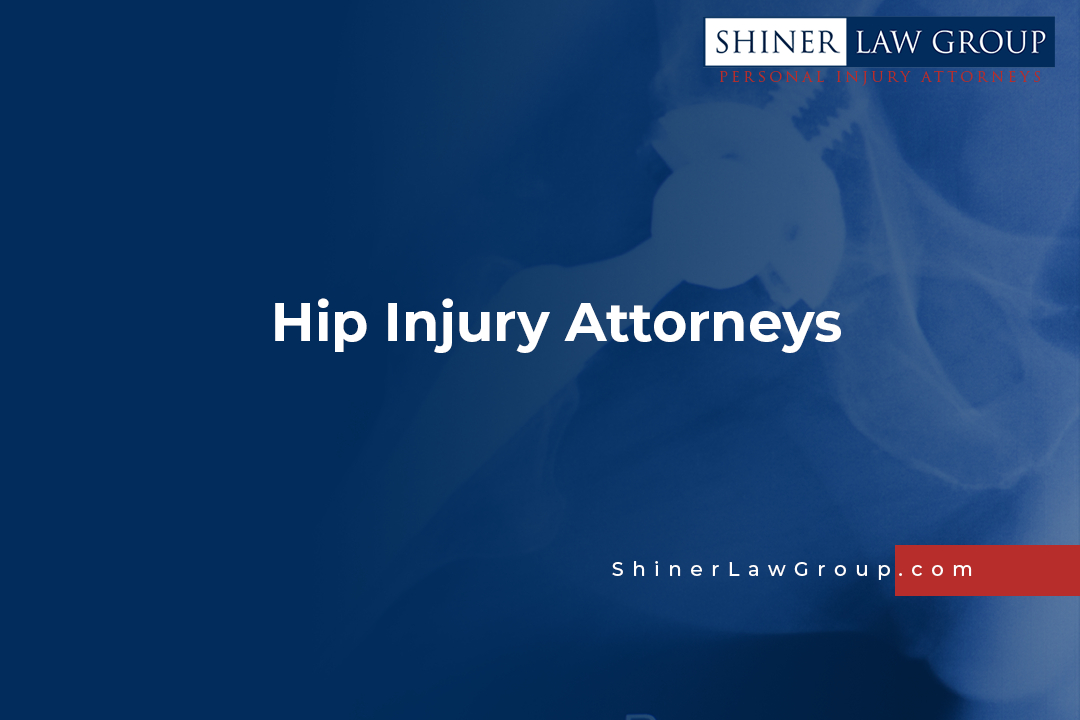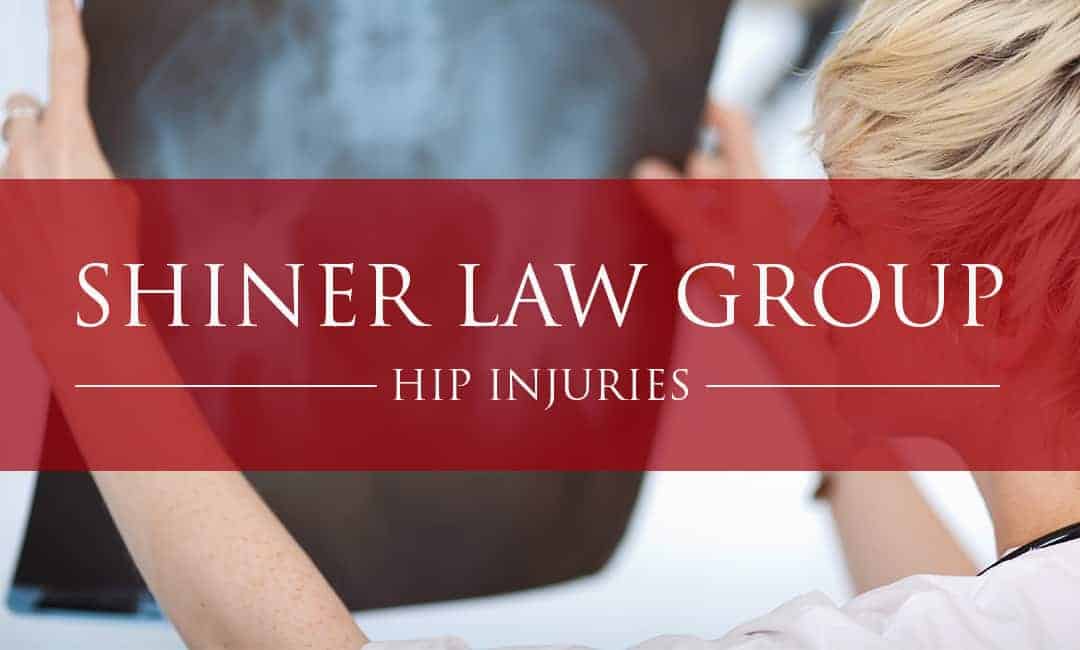The hip bone is vulnerable to various injuries after withstanding repeated motion. Regardless of your hip’s durability, it isn’t indestructible. With continuous use and age, the hip cartilage can get damaged or worn down. Hip injuries can be caused by several reasons across all age groups. Whether from a fall, a car accident, or some serious health condition like osteoporosis, it is essential to get the right treatment for hip injuries.
Types of Hip Injuries
There are several types of hip injuries, including:
Broken hip
A hip fracture or broken hip can happen at any age but it’s more common among individuals 65 years of age and older, especially women suffering from osteoporosis. For younger individuals, it can be caused due to a severe injury like a slip and fall accident or an automobile accident.
Bursitis
This is the inflammation and swelling of bursa (fluid filled sacs), which lubricate and cushion the hip joints. This condition can worsen with activities like walking.
Dislocation
A hip dislocation happens when the ball above the femur (your thighbone) dislocates from the socket, which results in an individual’s inability to move and experience severe pain. It typically takes a sudden trauma like a car accident to dislocate the hip. The individuals born with hip dysplasia or a shallow hip socket are more prone to hip dislocation.
Labral Tear
This is the damage caused to the cartilage, which surrounds the bony edges in the pelvis socket. It can happen due to the repetitive hip usage, from an accident or a fall, and also occur during the initial stages of osteoarthritis.
Snapping Hip Syndrome
This happens when the bands of connective tissues that support the hip thicken and catch when they slide back and forth at the top of the thigh bone. This can cause a snapping sensation, with or without pain and create audible noise. This is typically common among athletes like soccer players, weightlifters, runners, gymnasts, and ballet dancers due to sports injuries, vigorous and repetitive usage.
Symptoms of Hip Injuries
As per the condition resulting in hip pain or injury, you might experience the following symptoms:
- Pain or discomfort in your buttocks, groin, thigh, and inside and outside the hip joint
- Inability to sleep on your hip
- Hip tenderness
- Hip swelling
- Reduced movement of hip
- Warmth around the hip
- Lower back pain
- Joint pain
In some cases, pain and injuries from other parts of your body, like back pain might also spread towards your hip. This pain might increase with certain activities.
Treatment of Hip Injuries
There are various types of treatments for hip injuries, depending on the type of injury and its severity. Following are some common treatments:
Home Remedies
If the hip injury or pain is mild to moderate, it may be treated at home. You can utilize the RICE (Rest, Ice, Compression, and Elevation) treatment:
- Rest – proper rest for a few days can reduce the pain and heal the injury quicker.
- Ice – immediately after your injury, place an ice pack over it to reduce swelling. Make sure you don’t apply ice directly on your skin. Always use an ice pack or ice wrapped in a towel or a cloth.
- Compression – to reduce the swelling, it is best to wrap the injured area with a bandage.
- Elevation – whenever possible, try to elevate your legs above the level of your heart.
However, it is highly recommended that you consult your doctor immediately if the pain or swelling is severe, especially if you were involved in a car accident. Moreover, it is also important to seek legal help to claim for damages in case the injuries were caused by someone’s negligence.
Nonsurgical Treatment
Aside from the RICE treatment, there are other non-surgical treatments that can be done to treat your hip injuries, including:
- Heat Therapy – after 72 hours of sustaining the injury, you can opt for heat therapy or you can also alternate between heat therapy and ice therapy. This can be done via a heating pad, heat lamp or soaking in a hot bath. Heat therapy will enhance your movements and reduce pain.
- Exercise Program – there are certain exercises that can help in strengthening the hip muscles and enhance the muscle flexibility and endurance.
- Physical Therapy – if exercises or other home remedies and no-surgical treatments are not effective in relieving your pain then physical rehabilitation by an experienced therapist is highly recommended.
Aside from these suggestions, your doctor may prescribe anti-inflammation and pain relief medication, and might also recommend the use of crutches, based on the severity of your condition.
Types of Surgery
In case of severe hip injuries, where the muscles get torn and damaged or other serious problems arise, then your doctor may recommend surgery to ensure the normal movement and function of your hips. Following are the most common hip surgeries conducted to treat hip injuries:
Hip Replacement
Hip replacement is the most common hip surgery where the damaged hip is replaced with a plastic, ceramic, and/or metal prosthesis. Aside from the knee, the hip is the most replaced joint of the body. This procedure is conducted when there is irreparable damage to the hip joint, which results in constant pain and interferes with everyday movement.
Metal-on-Metal Hip Replacements
For the metal-on-metal replacements, both the socket and ball are created with metal. In hip replacement surgeries, as well as hip resurfacing surgeries, metal implants are utilized.
Arthroscopy
A minimally invasive surgery, arthroscopy has been used for knee pain and injuries for decades. Recently, it has been utilized to treat hip injuries as well. In this procedure, a lighted scope is inserted through small incisions on the skin over the injured area.
Osteotomy
This is a major surgical process through which the damaged areas of the hip are removed, after which the hip joint is repositioned or reshaped to rectify some deformity or/and enhance the function and alignment of the hip joint.
Speak With An Injury Lawyer Today
After getting a thorough medical examination, your doctor will recommend the right treatment option, according to your condition. It is highly recommended that you get immediate treatment, especially if you sustained hip injuries in an accident or/and because of someone’s negligent behavior. Contact Shiner Law Group and get a free case evaluation of your case to determine the damages you can recover from the negligent party.



